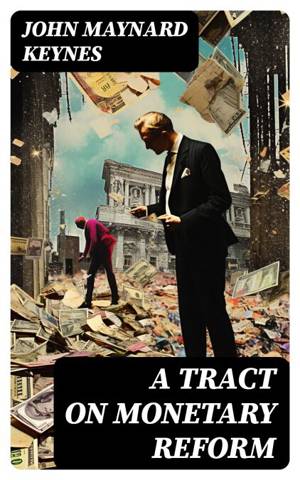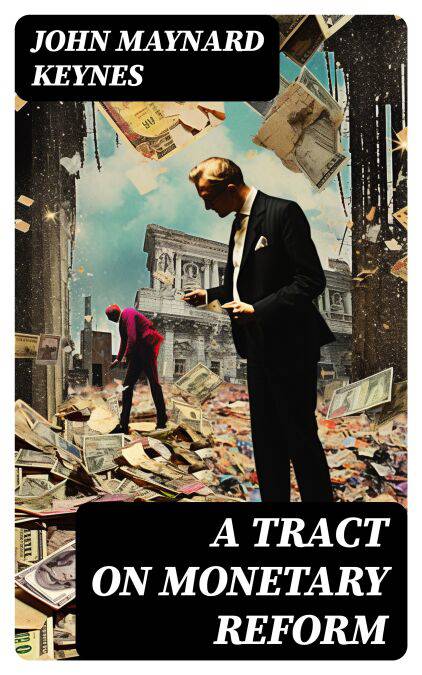
Je cadeautjes zeker op tijd in huis hebben voor de feestdagen? Kom langs in onze winkels en vind het perfecte geschenk!
- Afhalen na 1 uur in een winkel met voorraad
- Gratis thuislevering in België vanaf € 30
- Ruim aanbod met 7 miljoen producten
Je cadeautjes zeker op tijd in huis hebben voor de feestdagen? Kom langs in onze winkels en vind het perfecte geschenk!
- Afhalen na 1 uur in een winkel met voorraad
- Gratis thuislevering in België vanaf € 30
- Ruim aanbod met 7 miljoen producten
Zoeken
Omschrijving
In "A Tract on Monetary Reform," John Maynard Keynes presents a compelling analysis of the monetary system and its crucial role in promoting economic stability. Written in 1923, during a period of post-World War I turbulence, Keynes employs a clear, incisive style that reflects his deep understanding of both economic theory and practical application. The text critiques the rigidity of the gold standard and advocates for a more flexible monetary framework, emphasizing the need for a coherent approach to monetary policy that adapts to changing economic conditions. Keynes's insights laid the groundwork for subsequent economic reforms and resonate with contemporary debates around fiscal policy and monetary regulation. John Maynard Keynes, a prominent British economist, is revered for his revolutionary ideas that transformed economic thought in the 20th century. His experiences during the interwar period, marked by financial crises and the Great Depression, profoundly influenced his perspectives on economic stabilization. Keynesian principles became foundational to modern economics, promoting the importance of government intervention and stimulating aggregate demand. This book is essential reading for anyone interested in economics, finance, or public policy. It not only elucidates Keynes's visionary ideas but also invites readers to reconsider the frameworks that govern monetary policy today, making it a timeless resource for both scholars and practitioners.
Specificaties
Betrokkenen
- Auteur(s):
- Uitgeverij:
Inhoud
- Aantal bladzijden:
- 139
- Taal:
- Engels
Eigenschappen
- Productcode (EAN):
- 8596547728153
- Verschijningsdatum:
- 19/11/2023
- Uitvoering:
- E-book
- Beveiligd met:
- Digital watermarking
- Formaat:
- ePub

Alleen bij Standaard Boekhandel
Beoordelingen
We publiceren alleen reviews die voldoen aan de voorwaarden voor reviews. Bekijk onze voorwaarden voor reviews.









